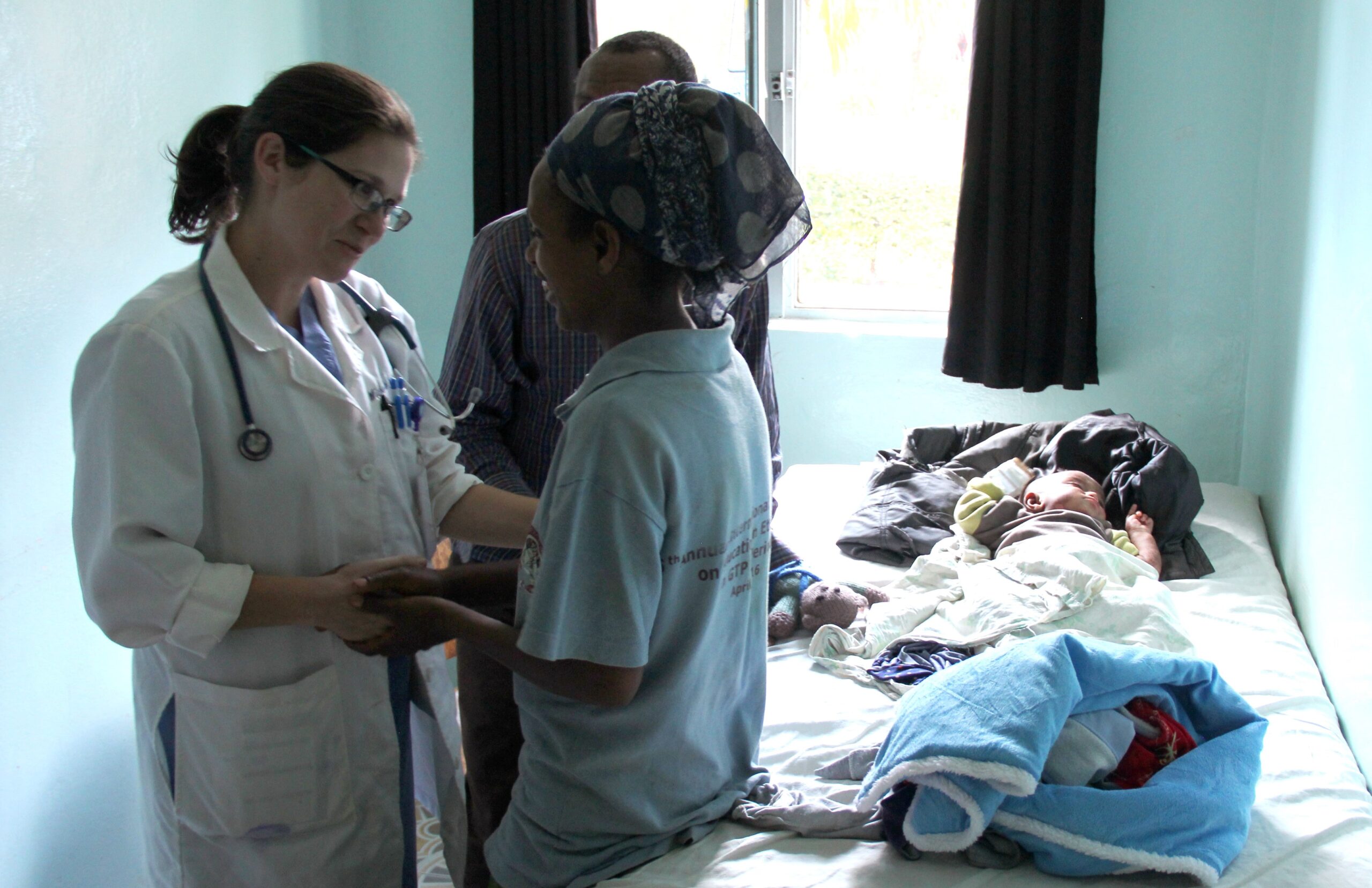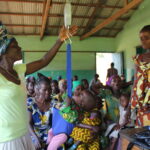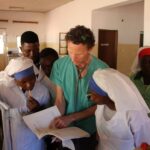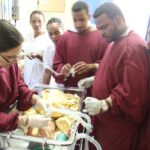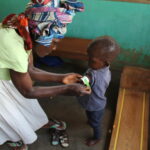What if Jesus went on hospital rounds with me?
Many of my posts thus far have been aimed at short-term medical workers volunteering in the developing world. This post is directed toward those serving as long-term medical missionaries or planning to in the future. I have said for years that if you want to identify best practices in medical missions, the first question you need to ask yourself is: “Does the work I am considering/analyzing support human dignity?”
Something I observed recently made me reflect on this. What does it mean to respect the dignity of the patients we serve in mission hospitals? And what does it look like to respect the dignity of our national colleagues? How would Jesus do this?
On one of my recent site visits to one of our locations in Africa, I had an opportunity to do morning rounds with a surgeon from another organization. We do not currently have anyone serving in the surgical area of this hospital, but I wanted to see the department to evaluate it in case we end up sending a surgeon to this location. I was impressed that there was a gathering for prayer and Scripture reading with the residents before rounds (many of whom were not Christian). Afterwards, when ward rounds began with the resident physicians, however, what I witnessed was very disappointing.
The team would go to each patient, not acknowledging the patient or greeting the patient in any way, and would then begin discussing the patient’s condition as if he or she was not present. It was as if the patients were invisible until the team needed to look at the surgical wound as it became a teaching point. Only a few times did I see any of the team interact with the patient or family directly, and that was as they were exiting.
I also saw national residents and staff degraded and treated harshly by a “missionary surgeon.” I saw residents looking at the floor afraid to speak up for fear of being shamed. Nurses were admonished for system and supply problems that were out of their control. As a former surgical ICU nurse and nurse administrator, I watched quietly. Being a visitor in this context, I was not sure how to respond. I began to feel like such a hypocrite, at least by association. A few minutes before we were praying and reading Scriptures about being Christlike. Now one of the people I was following, a medical missionary, was being rude and degrading people. For me as an observer, it was frustrating and awkward.
I do not want to be too harsh towards the surgeon I was following because everyone has a bad day, and we all lose our cool at times. Part of the way through rounds he realized he was being a bit rough and apologized to the residents and nursing staff. This attending surgeon seemed clinically excellent, I doubt anyone could argue otherwise; however, clinical excellence alone does not make a medical missionary. It requires a desire and willingness to share the love, compassion, and mercy of Jesus with every patient, with the resident physicians, and with the hospital staff. Also needed is a willingness to ask forgiveness when we fail at this, and we all do. Medical missions requires building and maintaining Christ-centered leadership skills.
The greatest concern to me was that the basic human dignity of the patients and our national colleagues was being disrespected. I also feared for the witness and reflection this was having on the entire missionary community at this facility.
As Christians and as medical “missionaries” we are called to a higher standard. We are not just there to respect human dignity but to share the compassion, love, and mercy of Christ. We must ask ourselves: Are we engaging people in our medical ministry as Jesus would? Are our interactions with patients and staff glorifying Christ? Simply taking 10 to 30 seconds of authentic presence with each patient before starting to discuss their condition over them is a good first step. By authentic presence I mean touching them, looking them in the eye, and affirming we are there to help them. I mean assuring them we care. This is a basic step in preserving the dignity of our patients, and it is the starting place for them to feel Christ’s love and compassion through our work. It is striking how easily this can be skipped in the educational mission hospital setting. It is not always possible to pray with every patient, but a 15 to 30 second prayer at the end of the patient encounter can also go a long way toward allowing people to feel the healing touch of Christ in their lives.
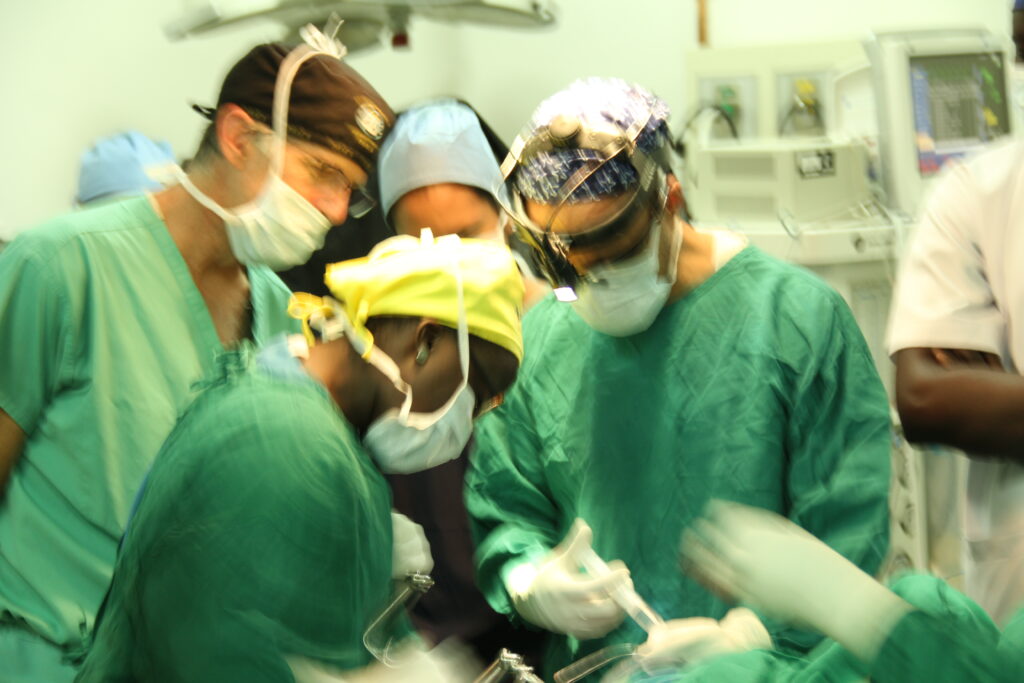
Missions is about relationship, and in a mission hospital our national colleagues and staff are the foundational relationships upon which our ministry is built. Building relationships with national staff and residents is very much about coaching and mentoring; at its core it is servant leadership. I was speaking with CHSC missionary, Dr. Tim Berg, recently, and he shared something I thought was very profound. Tim is a general surgeon who heads up the PACCS (Pan-African College of Christians Surgeons) surgical residency at Kijabe Hospital in Kenya, the preeminent teaching hospital in East Africa.
The first thing he said was, “Clinical education is about leadership.” I couldn’t agree more. Next he said, “If you want to make changes in people’s performance, tell it like it ought to be not like it is.” In other words, there are ways to say things to inspire people to a higher level of performance, encouraging them and never discouraging them. Speak to people in a way that expects a higher level of performance because of a profound belief in their capabilities and capacity. He corrects people in love, always building others up even when calling people to account. He speaks it as it ought to be, never tearing people down. I have watched Tim at work, and he is a shining example of the servant leadership of Jesus! The residents love Tim, and they work to perform at their highest level because he loves them and believes in them. He disciples them and works to show them the love of Jesus through his mentorship and coaching. That is what medical missionaries are called to do.
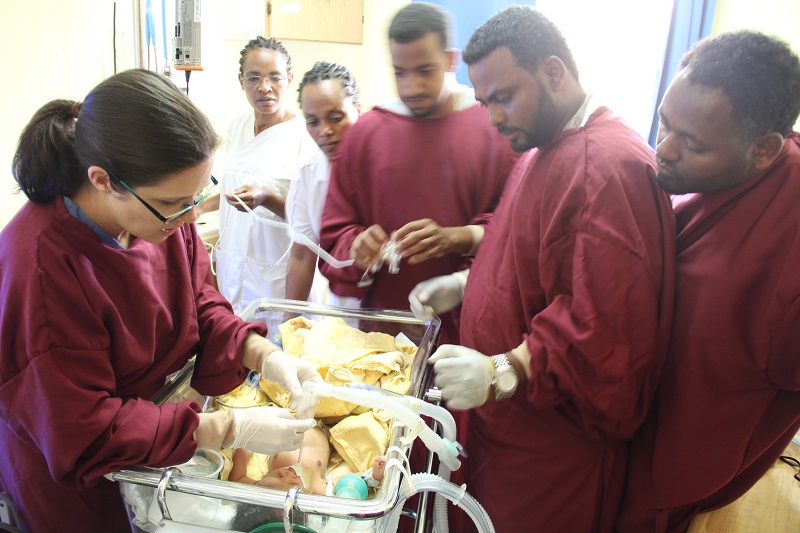
On another recent hospital site visit, I was blessed to follow CHSC missionary physician, Dr. Michelle Yates, on rounds in the pediatric ward at Soddo Christian Hospital in Ethiopia. I was amazed at the contrast from the surgical hospital rounds I described earlier in this post. Before interaction with the nurses or residents, she engaged the patient and the child’s parent. I witnessed her love for families as she spoke with them with deep compassion, holding the hands of young moms as she interacted with them. Then, I watched as she spoke life and encouragement into the residents, sincerely expressing the attitude that she has as much to learn from them as she has to teach them.
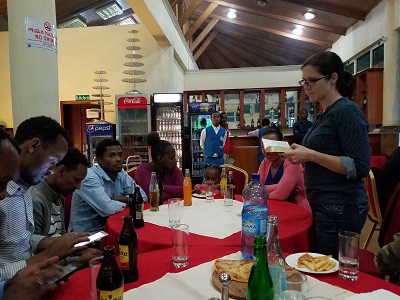
I also participated in a pediatric department celebration. Michelle took all the nurses in her department out to dinner. She had embarked on a quality improvement project with her team a few months prior. She wanted her nurses to assess and record the hydration status at certain intervals for all the pediatric inpatients. After three months, all the nurses now understood the importance of assessing and recording the hydration status of children. All of the nurses were willingly doing the assessments and charting because it was the right thing to do. The dinner was to celebrate the success of this initiative.
Michelle understood the foundation of leading change in any context, especially a mission hospital, takes focusing on one problem at a time, constant reinforcement, and correction in love. It is never an easy process to facilitate change, particularly in this setting. It takes real servant leadership. After spending time with Michelle and her team of residents and nurses, I believe she is a model of a servant leader. During the celebration dinner, she praised the efforts of each staff member and their dedication to raising the quality of care for their pediatric patients. Then, she stood, gave credit to God, and read Colossians 3:23-24, “Whatever you do, work at it with all your heart, as working for the Lord, not for human masters, since you know that you will receive an inheritance from the Lord as a reward. It is the Lord Christ you are serving” (NIV). This verse reinforced that all of our work is unto the Lord.
I know there are no simple answers for giving good care in mission hospitals or for being a good medical missionary, especially in settings that do clinical education. I also know that these environments can be extremely challenging and frustrating for professionals trained in the West. Finding people who are modeling best practices as “medical missionaries” and learning from them as a new missionary is crucial.
Prioritizing time for a personal devotional life, seeking out good mentors, keeping an attitude of continuously learning from our national colleagues, and sincerely loving them and those we serve are all great starting places. However, what will define our ministry is did we show Christ’s love, compassion, and respect for human dignity to our patients and to our national colleagues?
